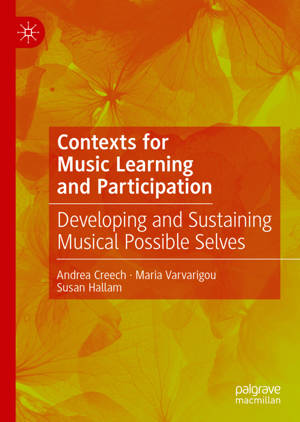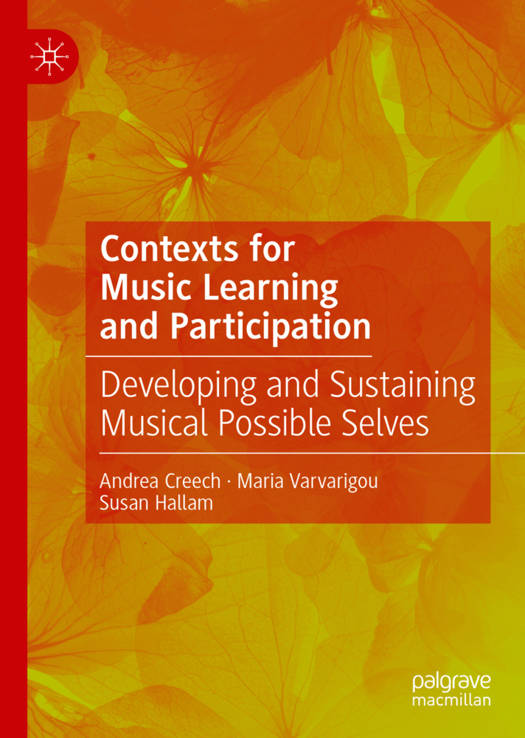
- Afhalen na 1 uur in een winkel met voorraad
- Gratis thuislevering in België vanaf € 30
- Ruim aanbod met 7 miljoen producten
- Afhalen na 1 uur in een winkel met voorraad
- Gratis thuislevering in België vanaf € 30
- Ruim aanbod met 7 miljoen producten
Zoeken
Contexts for Music Learning and Participation
Developing and Sustaining Musical Possible Selves
Andrea Creech, Maria Varvarigou, Susan Hallam
Hardcover | Engels
€ 137,45
+ 274 punten
Uitvoering
Omschrijving
This book sets out a contemporary perspective on music education, highlighting complex intersections between informal, non-formal and formal practices and contexts. At a time when the boundaries between music learning and participation are increasingly blurred, this volume is distinctive in challenging a 'siloed' approach to understanding the diverse international music education landscape. Instead, the book proposes a multi-layered continuum of practices that can be applied across a range of formal, informal or non-formal concepts to support the development of musical possible selves. It challenges existing conceptions of learning in music education in part by drawing on research in adult learning, but also by considering the contexts in which learning takes place, and the extent to which this learning can be classified as formal, informal or non-formal.
Specificaties
Betrokkenen
- Auteur(s):
- Uitgeverij:
Inhoud
- Aantal bladzijden:
- 281
- Taal:
- Engels
Eigenschappen
- Productcode (EAN):
- 9783030482619
- Verschijningsdatum:
- 28/07/2020
- Uitvoering:
- Hardcover
- Formaat:
- Genaaid
- Afmetingen:
- 148 mm x 210 mm
- Gewicht:
- 498 g

Alleen bij Standaard Boekhandel
+ 274 punten op je klantenkaart van Standaard Boekhandel
Beoordelingen
We publiceren alleen reviews die voldoen aan de voorwaarden voor reviews. Bekijk onze voorwaarden voor reviews.











